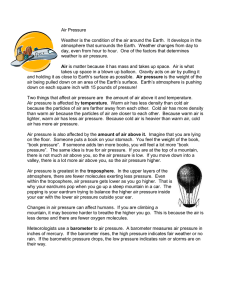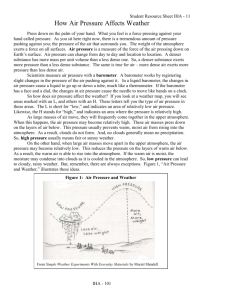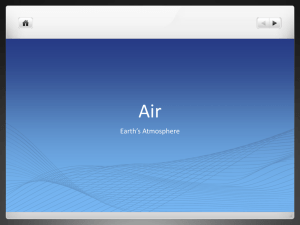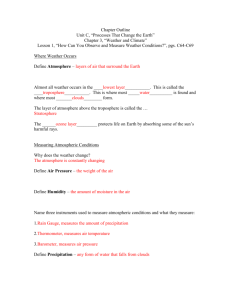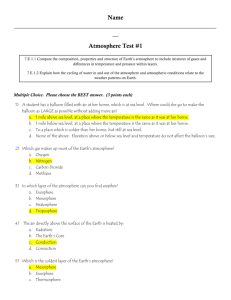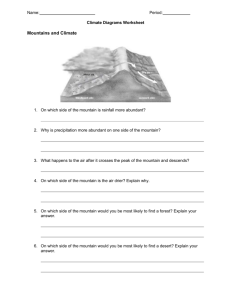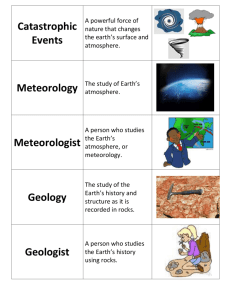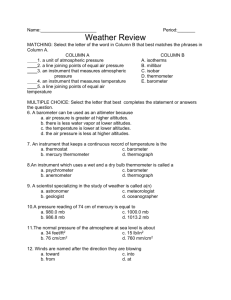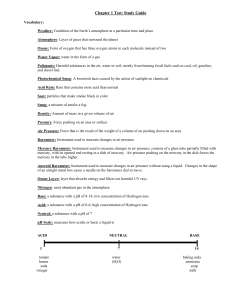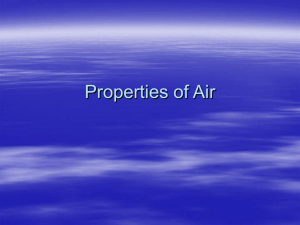Air Pressure
advertisement
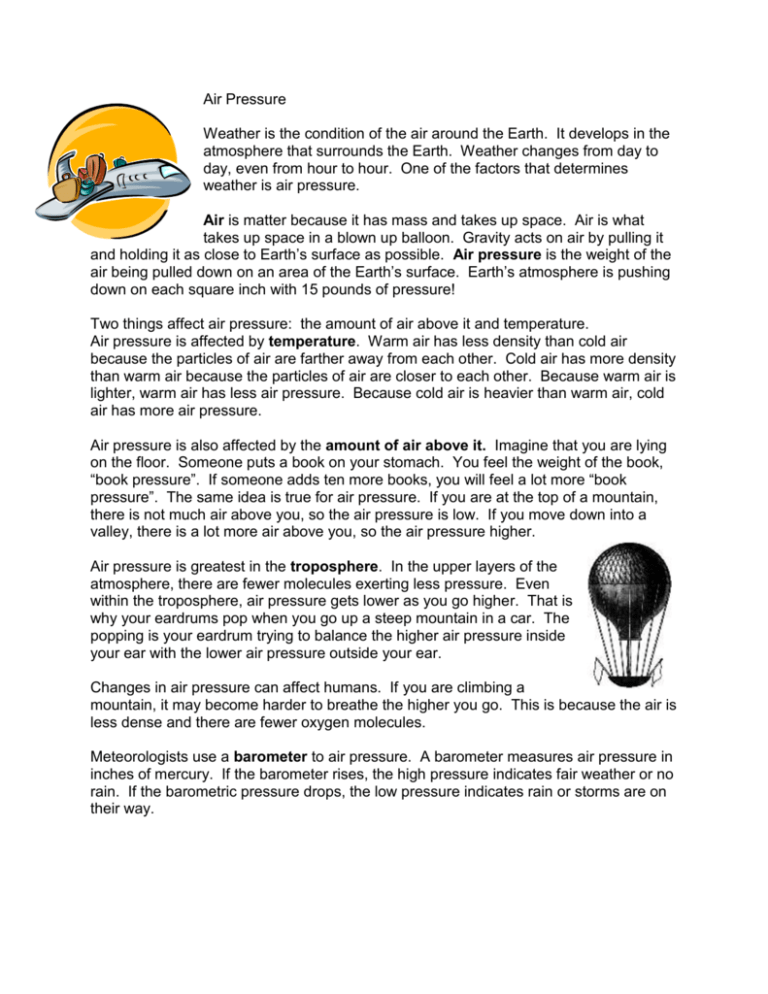
Air Pressure Weather is the condition of the air around the Earth. It develops in the atmosphere that surrounds the Earth. Weather changes from day to day, even from hour to hour. One of the factors that determines weather is air pressure. Air is matter because it has mass and takes up space. Air is what takes up space in a blown up balloon. Gravity acts on air by pulling it and holding it as close to Earth’s surface as possible. Air pressure is the weight of the air being pulled down on an area of the Earth’s surface. Earth’s atmosphere is pushing down on each square inch with 15 pounds of pressure! Two things affect air pressure: the amount of air above it and temperature. Air pressure is affected by temperature. Warm air has less density than cold air because the particles of air are farther away from each other. Cold air has more density than warm air because the particles of air are closer to each other. Because warm air is lighter, warm air has less air pressure. Because cold air is heavier than warm air, cold air has more air pressure. Air pressure is also affected by the amount of air above it. Imagine that you are lying on the floor. Someone puts a book on your stomach. You feel the weight of the book, “book pressure”. If someone adds ten more books, you will feel a lot more “book pressure”. The same idea is true for air pressure. If you are at the top of a mountain, there is not much air above you, so the air pressure is low. If you move down into a valley, there is a lot more air above you, so the air pressure higher. Air pressure is greatest in the troposphere. In the upper layers of the atmosphere, there are fewer molecules exerting less pressure. Even within the troposphere, air pressure gets lower as you go higher. That is why your eardrums pop when you go up a steep mountain in a car. The popping is your eardrum trying to balance the higher air pressure inside your ear with the lower air pressure outside your ear. Changes in air pressure can affect humans. If you are climbing a mountain, it may become harder to breathe the higher you go. This is because the air is less dense and there are fewer oxygen molecules. Meteorologists use a barometer to air pressure. A barometer measures air pressure in inches of mercury. If the barometer rises, the high pressure indicates fair weather or no rain. If the barometric pressure drops, the low pressure indicates rain or storms are on their way. 1. The weight of the air being pulled down on Earth is known as __________________ 2. What force is pulling on air and keeping the atmosphere close to Earth? ________________________________________ 3. What are 2 factors that effect air pressure? __________________________________________________________________ 4. In which temperature of air are the molecules closest together? ________________ 5. Why does cold air have more air pressure than warm air? 6. Where would you find a greater number of air molecules – at the bottom of a mountain or the top of a mountain? ___________________________ 7. A general rule for air pressure is that it higher in the atmosphere. increases decreases as you go 8. Where is air pressure greater: at a high altitude or a low altitude? Why? 9. Why do mountain climbers have a hard time breathing when they get near the top of the mountain? 10. Draw a picture that illustrates the decrease in air pressure as you go higher in the atmosphere. 11. What instrument measures air pressure? _______________________________ 12. Yesterday the barometer read 29.97”. Today it reads 30.02”. What kind of weather can we expect?
